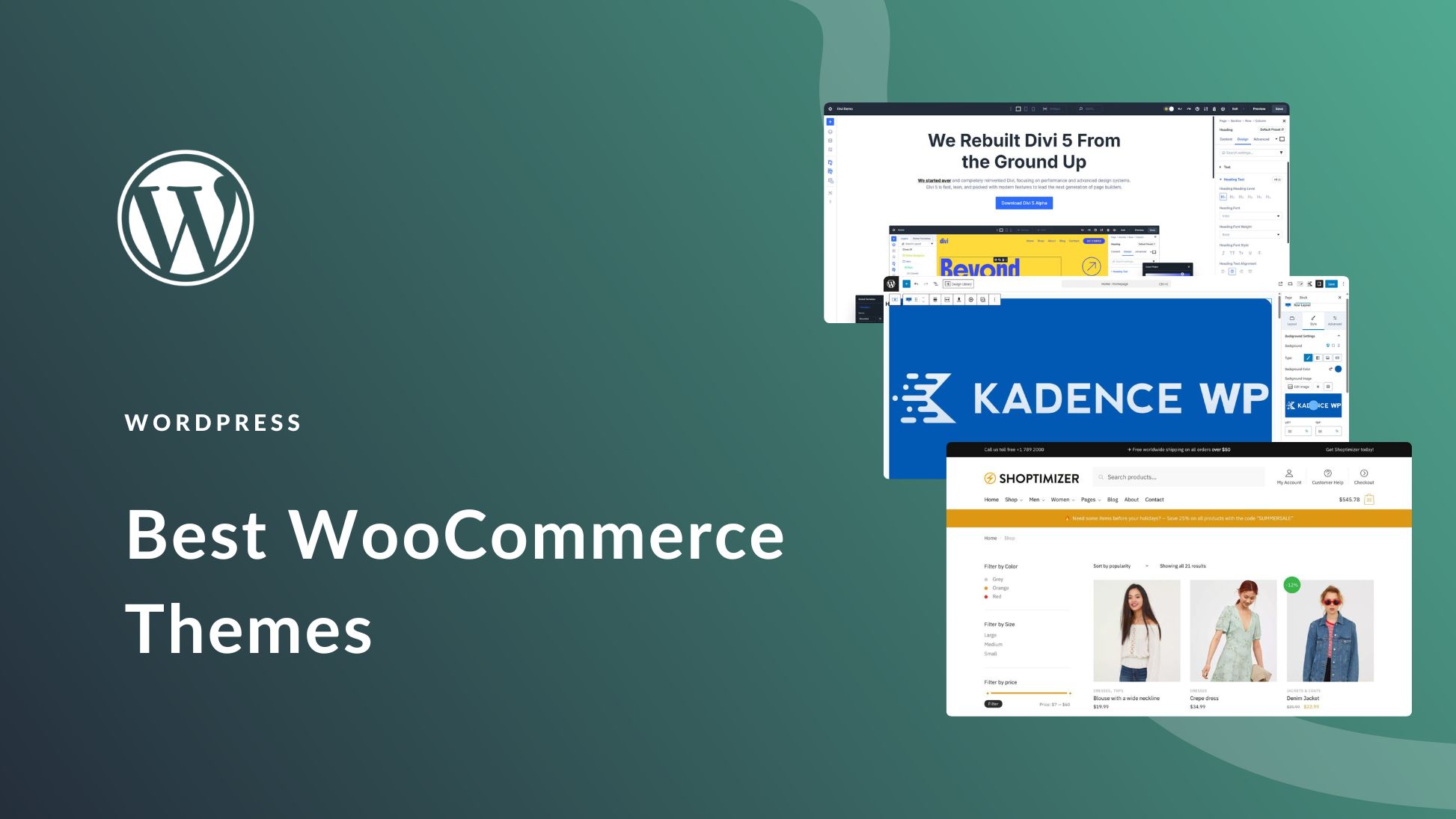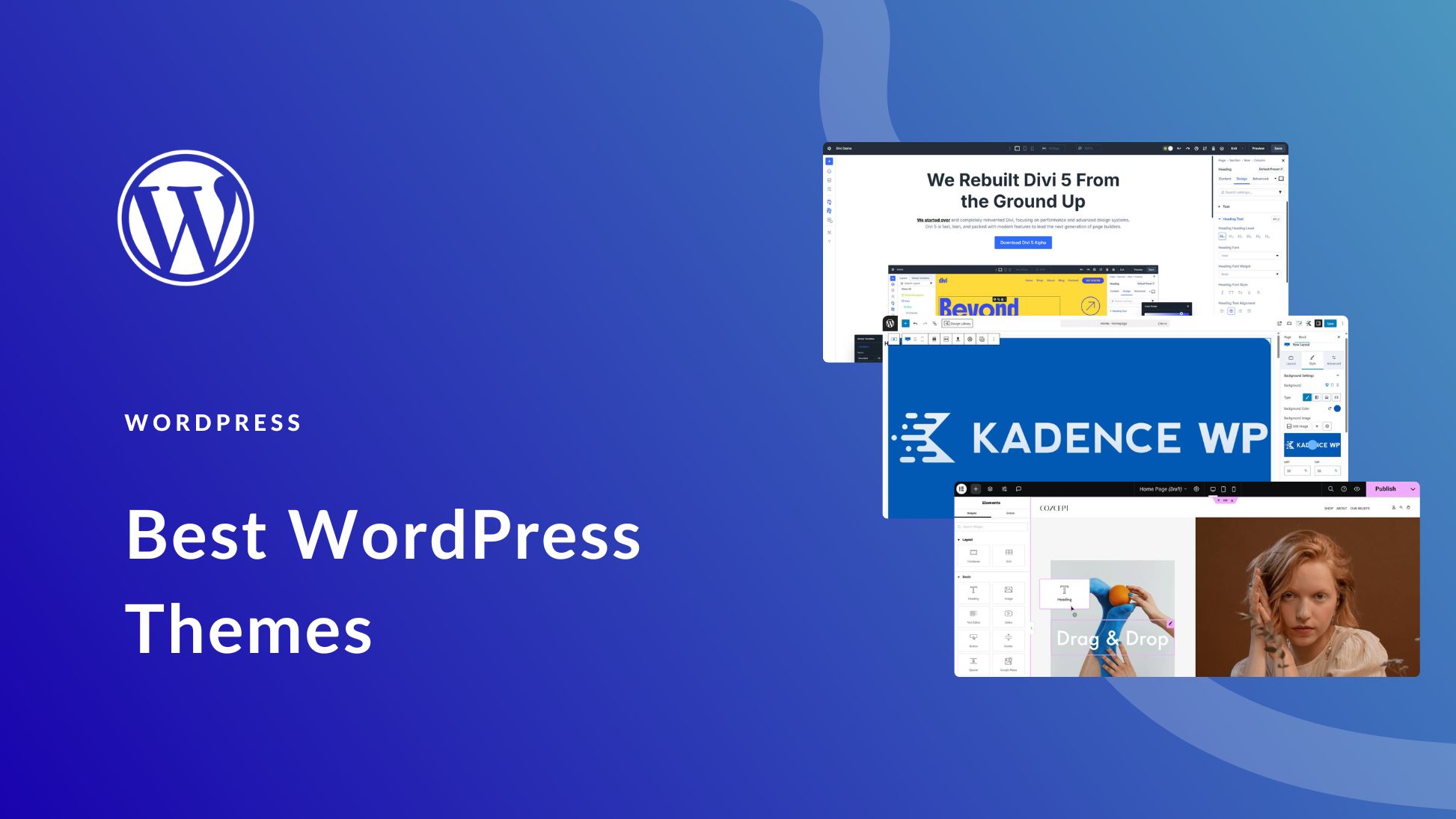Despite the name of this article, free websites absolutely have their place. Hobby bloggers and even some professionals looking to create digital portfolios can make excellent use of these platforms. However, if you want a site that can grow alongside your business or brand, opting for the quick and cheap solution can lead to bad results.
In this article, we’ll explain the drawbacks of free websites and why you might want to avoid them.
Let’s jump in!
- 1 A Brief Introduction to Free Website Services
-
2
10 Reasons Free Websites Are Bad
- 2.1 1. It Might Not Really Be Free
- 2.2 2. Free Websites Typically Have Poor Performance and Scalability
- 2.3 3. You Won’t Be Able to Use a Custom Domain
- 2.4 4. Your Provider May Place Ads On Your Site and Limit Monetization Opportunities
- 2.5 5. Limited Access to Your Site Data Could Cause Problems
- 2.6 6. Providers Can Shut Down Your Free Website
- 2.7 7. Your Information May Be Sold
- 2.8 8. Free Website Builders Provide Limited Customization Options and Functionality
- 2.9 9. Minimal Customer Support
- 2.10 10. You May Encounter More Security Issues
- 3 Conclusion
A Brief Introduction to Free Website Services
Before we proceed, let’s take a moment to define what we mean when we refer to ‘free websites’. This is any site created using a platform that provides hosting at no charge, including (but not limited to):
- The WordPress.com free plan
- Free plans from popular website builders such as Wix and Weebly
- Self-hosted WordPress installed on a free host such as 000WebHost
We’re not referring to self-hosted WordPress (which is free) installed on a paid hosting plan, or a website using a domain registered for free as part of such a service. Because you’re paying for something in these packages, they’re not free services (although parts of it are).
With this cleared up, let’s list some reasons why these solutions can be bad for some websites.
10 Reasons Free Websites Are Bad
As we already mentioned, free websites aren’t bad for everyone. If you feel that none of the points below are a major concern for you, you may be able to make good use of these budget-friendly services. However, if you do decide to take this route, we suggest selecting a highly-rated free WordPress hosting provider and researching your options thoroughly.
It’s best to know what you’re getting yourself into before you do so. Moving on, here are some of the top reasons why free platforms tend to make bad websites.
1. It Might Not Really Be Free
For starters, you may be signing up for a subpar service that isn’t even actually free. For example, some platforms promote their trial periods in ways that make it sound like you’ll be getting a site for free.
In reality, you may have to hand over your credit card details or lose access after the trial is over. Worse, if you provided your payment information during the signup process, the provider might charge you without notice.
Another potential issue is hidden costs. For example, you may have to pay higher than normal fees for services such as website transfers, image hosting, professional email addresses, and other advanced features. In summary, make sure to read the fine print before you go all-in with a tasty offer.
2. Free Websites Typically Have Poor Performance and Scalability
The most glaring issue that typically comes up with free websites is poor performance. Pages tend to be slow to load, which hurts your User Experience (UX) and Search Engine Optimization (SEO).
This is due in part to restricted hosting resources. In addition to preventing your site from loading in a timely manner, this can also make it hard to scale your site. Limited bandwidth and storage will put a cap on how much content you can reasonably publish.
3. You Won’t Be Able to Use a Custom Domain
Another big drawback to free websites is that your site will have a branded domain, such as yoursite.wordpress.com. This looks unprofessional, can be confusing to some visitors, and is not beneficial to your own brand.
Most platforms offer custom domains as a paid add-on. However, you can usually acquire one at a similar or lower price from a domain registrar and pair it with low-cost hosting for a much better effect.
4. Your Provider May Place Ads On Your Site and Limit Monetization Opportunities
It’s common for free website providers to put ads for their own services on users’ websites. This is unfortunate for you because ads can be off-putting to some visitors. Users may also become distracted by them and navigate away from your site.
You might be willing to put up with this if you got a cut of the revenue these ads generate – but you don’t. In fact, most providers prevent you from running your own ads and may even have restrictions regarding your ability to monetize your site at all.
If your primary goal in starting a website is to make money, you’re definitely better off paying to launch it. This will give you complete (or at least more) control over your content and the ability to scale your site over time.
5. Limited Access to Your Site Data Could Cause Problems
Free websites usually don’t provide the same level of access to data that paid ones do, especially when compared with open-source solutions such as WordPress. This can lead to a variety of problems, including:
- Lack of access to analytics, which can inhibit your optimization and marketing efforts
- Difficulty moving your site to another provider if you want to switch to a paid platform
- Limited ability to take your site down if you no longer want it to be visible to the public
When you invest the time and effort required to build a website, you want the end product to be yours. Limited control over your own content and data can be frustrating to say the least, s0 factor this into the cost of paying for hosting.
6. Providers Can Shut Down Your Free Website
Free website services often include clauses in their Terms and Conditions that enable them to cancel your account for any reason and remove your website from the internet in the process. Usually, this happens due to lack of payment or violation of terms.
In this event, you could lose years of work invested in your site. It’s also possible that your provider goes out of business or otherwise closes its doors. This might also result in your website being permanently deleted.
7. Your Information May Be Sold
When it comes to free services on the web in general, it’s pretty safe to assume that the provider is selling your information to other companies. After all, they’re not making any money from you otherwise.
In this day and age, online privacy is more valuable than ever. As such, make sure you know what you’re giving up in exchange for your ‘free’ website.
8. Free Website Builders Provide Limited Customization Options and Functionality
Another huge setback that comes with free websites is the lack of customization options and other functionality they provide. Some of these may include:
- Restrictions on which themes and plugins you can use
- Limited e-commerce functionality (or none at all)
- Fewer site-building tools, such as pre-built elements or templates
- A cap on the number of pages you can add
- Minimal or no SEO tools
The old adage ‘you get what you pay for’ definitely applies here. If you’re getting a service that other people pay for at no cost, you’re probably not really getting the same service.
9. Minimal Customer Support
Speaking of which, platforms that offer free websites don’t usually provide much – if any – support for non-paying users. At best, you can expect a self-serve knowledge base and maybe a community forum where you can ask other users for help.
This may be fine for small roadblocks, but if you’re facing down a big-time error, you don’t want to be without guidance. Especially if you’re not particularly tech-savvy, paying to have someone in your corner could save you a lot of trouble down the line.
10. You May Encounter More Security Issues
Last but definitely not least, your free website may be less secure than similar sites hosted on paid plans. Companies simply aren’t going to invest as much in servers that aren’t supported by paying customers.
On top of that, free websites have a reputation for distributing malware. Not only is this horrible for your users, but it could also seriously damage your brand’s reputation.
Conclusion
The offer of a free website can be tempting. However, if you actually want to bring traffic to your site and grow it into a digital brand, signing up for one of these services is starting on a bad note.
Free websites tend to have poor performance and security. They’re impossible to scale effectively, and you’ll miss out on many of the features that make starting a website worthwhile, including a custom domain, monetization opportunities, and customization options.
If you are looking for the most robust website builder solution, we recommend using WordPress combined with the Divi website builder. With Divi, you get a robust design tool built on top of the most popular website platform. There are a lot of reasons to choose WordPress over free website builders!
Do you have any questions about free websites? Ask away in the comments section below!
Article image by newcorner / Shutterstock.com









Great article! Free Websites need to use for only practice & Experiment purposes only. That’s why I built my own website on paid domain and hosting.
Thanks, Lynn! Glad you liked the post.
I agree with you and thank you for sharing your experience 🙂
You’re welcome, Prawnik!
Awesome article. Thank you so much for sharing this .Everyone wants a free website but they don’t know that free websites are really damaging their business or whatever the purpose of website is.
Thanks, Tessy!
At first, I want to say there is no “FREE” website. You just get a demo or sample as free. Being a Web Development services provider, we know that When you are going to work with a free version, you will face a lot of unavoidable limitation.
Such as-
• Most of the free website is not search engine friendly
• Limited design
• Unresponsive design
• Can’t put your desired logo
• Uploaded photo may look weird
Thanks for the info!
I’m just completely blown-away by the amount of people that have a website hosted on a free platform like Blogger/Wordpress and struggle to get traffic, make it successful, make money, etc. I think it goes without saying: You get what you pay for…
So true, Florian! I think the appeal of getting something ‘for free’ overshadows people’s better judgment sometimes.
you’re 100 % right, Will!
I totally agree! I spend most of my time ‘rescuing’ clients who want to build their site for free and then get stuck. I always say that you get what you pay for – and if it’s free then there is going to be some serious compromise. And as a customer – if I see a business has a ‘free’ website then I am definitely less inclined to purchase from them as I see it as they cannot be bothered to invest in their business. Just my take on it all…
Thanks, Holly! I appreciate your input.
Free websites might be helpful for personal use in some cases, but they don’t work well for professional use. Plus, as mentioned in the blog, free websites aren’t actually free. One way or another, you have to pay some amount to put your website to work.
Completely agree, Nishant. Thanks for chiming in!
I have spent actually quite a lot of money on free websites. There are hidden costs, such as buying images and creating videos or anything else and then to really use a lot of features, in particular anything ecommerce, you normally to need to sign up and pay a fee.. I was first attracted to build my own website since cost was big factor but also I liked the idea of creative effort and the fun of it. However, in the end, though it looked good, I just don’t think free or even cheap template sites are as good as getting a web designer. I also did my own because then I thought I’d have total control over it. But my current website is a WordPress site and though created by a designer I can still make changes as well. I think the marketing makes free websites sound like some sort of ideal, when there are pros and cons.
Thanks for sharing your experience, Jason. Happy to hear you now have a site that works for you!
Good article… 70% of sites I have had to rebuilt are from people using some sort of “free” website platform and finding out about the above listed drawbacks. Keeps me in business.
Thanks for your insight, Bernard!
With web designers such as myself, you are pushing against an open door here. I couldn’t agree with you more. All too often a DIY web site looks exactly that. I’ve just picked up a client who had started his website using one of these sites that state they can be up and running in an hour but in the end he had to admit defeat. I changed him over to WordPress/Divi and he is delighted but it wasn’t for free. Nevertheless he’s very happy with the result and that in the end is what matters.
Thanks for sharing, Brian! It’s great to hear a success story.